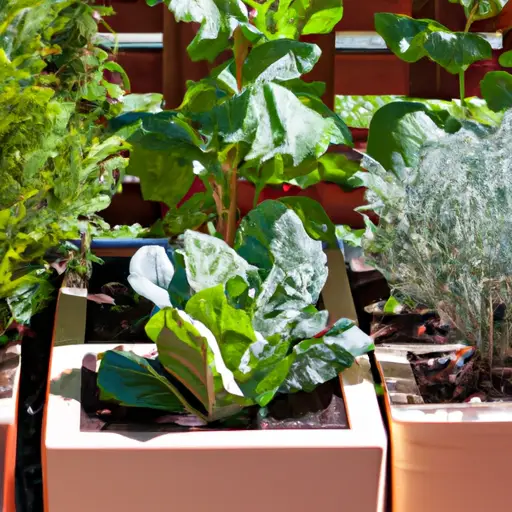From Patio to Plate: Growing Your Own Food with Container Gardens
In recent years, the concept of growing your own food has gained immense popularity. With concerns about food safety, environmental impact, and access to fresh produce, many people are turning to container gardens as a solution. Container gardening allows individuals to grow their own food in limited spaces such as balconies, patios, or small gardens. It provides the opportunity to enjoy the taste of homegrown vegetables and herbs while reaping other benefits such as saving money and promoting sustainability. In this article, we will explore the joys and advantages of growing your own food through container gardening.
One of the most significant benefits of container gardening is its versatility. It offers the opportunity to cultivate various types of plants regardless of space constraints. Whether you have a small balcony or a large patio, container gardens can be customized to fit any size or shape. With different sizes and styles of containers available in the market today, you can choose ones that appeal to your aesthetic preferences while fitting into your designated growing space.
Moreover, container gardens allow individuals to overcome limitations imposed by poor soil quality. By planting in containers filled with high-quality potting mix, gardeners can ensure that their plants receive optimal nutrition without having to worry about poor soil conditions present in their surroundings. This level of control over soil quality helps promote healthy plant growth and increases the likelihood of a successful harvest.
Container gardening is also an excellent solution for those living in apartments or rental properties where access to a traditional garden may not be possible. It provides urban dwellers with an opportunity to connect with nature and grow their own food even in an urban landscape lacking garden space.
Another advantage is that container gardens require relatively low maintenance compared to traditional gardens. The confined space limits weed growth, reducing the need for excessive weeding. Containers also act as natural barriers against pests and diseases that commonly affect plants grown directly in the ground. This allows individuals to spend less time and effort on plant maintenance and focus more on the enjoyment of gardening and harvesting fresh produce.
In addition to the practical advantages, container gardening also offers numerous health benefits. Engaging in gardening activities has been proven to reduce stress levels and improve mental well-being. It provides an opportunity for individuals to disconnect from the hustle and bustle of everyday life and reconnect with nature. The act of nurturing plants and watching them grow can be incredibly rewarding, both mentally and emotionally.
Furthermore, growing your own food through container gardening is a fantastic way to ensure that you are consuming fresh, nutritious produce. Instead of relying on store-bought fruits and vegetables that may have traveled long distances or been exposed to harmful chemicals, you can harvest your crops when they are at their peak ripeness and enjoy them at their best. This not only enhances the flavor but also maximizes the nutritional value of the food you consume.
Container gardens offer endless possibilities when it comes to choosing what plants to grow. From leafy greens like lettuce and spinach to flavorful herbs like basil or thyme, you can handpick your favorite edibles based on your taste preferences. Additionally, container gardens can include fruit-bearing plants such as tomatoes or strawberries, allowing you to indulge in homegrown sweetness during their respective seasons.
To get started with container gardening, begin by selecting suitable containers based on the space available and the type of plants you wish to grow. Make sure that each container has adequate drainage holes to prevent waterlogging, as this can lead to root rot. Next, choose a high-quality potting mix that provides proper drainage while retaining enough moisture for plant roots. Select seeds or young plants from a reliable source depending on your chosen crops.
Watering is one crucial aspect of maintaining healthy container gardens. Check moisture levels regularly by sticking a finger into the soil; if it feels dry up to your first knuckle, it is time for watering. Avoid overwatering, as excess moisture can cause root rot, and avoid underwatering, as it may lead to stress or nutrient deficiencies in your plants.
Regular fertilization is also essential for the overall health and productivity of container plants. Choose organic fertilizers or opt for slow-release fertilizers that provide a constant supply of nutrients over an extended period. Follow the specific instructions provided by the manufacturer to ensure proper application.
As you embark on your container gardening journey, remember to have fun and be patient. Cultivating plants requires time, effort, and a bit of trial and error. Don’t get discouraged by any setbacks; instead, view them as opportunities to learn and improve your techniques.
In conclusion, growing your own food through container gardens is a fulfilling and rewarding experience. It provides numerous benefits ranging from convenience and versatility to improved mental well-being and access to fresh, nutritious produce. With a bit of creativity, dedication, and care, anyone can transform their patio into a bountiful source of homegrown goodness. So why not give container gardening a try? Your taste buds – and the environment – will thank you!













